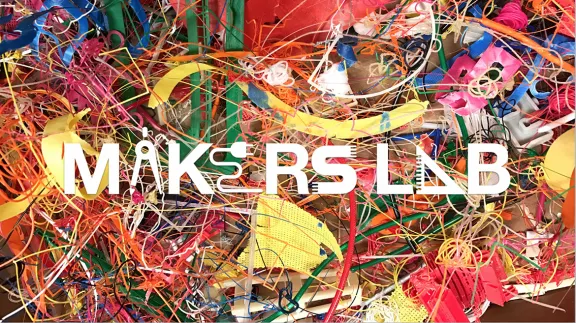
3-D Manufacturing at Your Fingertips
Want to get down and express your creativity with unique tools and techonologies? The Makers Lab is a chill space where students, staff, and well, anyone with a UCSF ID can do just that! Opened in April 2016, The Makers Lab is located just past the main entrance of the Parnassus Library and dropping in to use the space is welcome. Days and hours of operation are Monday, Wednesday, Friday, 10 a.m. – 6 p.m. and there is no cost for using their services. Users can also reserve and check out electronics such as a Raspberry Pi.
What’s a Raspberry Pi you ask? It’s a palm sized, programmable computer, that can be used to make things like a twitter enabled coffee pot, pirate radio station, and much more.
Pop up’s are held throughout the month and they have a variety of topics to choose from, such as intro to 3D printing, electronics, and crafting.
“If you are not sure where to start, there are a number of staff led pop-ups scheduled throughout the month to help get you inspired,” said Dylan Romero, Makers Lab Manager.
“We encourage people to work on either personal or UCSF related projects,” he said.
A list of monthly pop-ups and registration can be found here.
“Libraries have a long history of supporting innovation and technology going back to typewriters, then personal computers, and now technology like 3D printing,” said Dylan.
3D printing is a technology that was invented in the 1980s but with advancements in computer engineering, open sourced programming, and low cost manufacturing – became widespread and accessible to the creative commons.
The general concepts are modeling a design with a computer program then printing the three dimensional object with a polymer, metal, glass, or even bamboo wood material, layer upon layer.
The opportunities in the health sciences and the 3D printer are infinite.
Unique tools that were once out-of-reach to curious minds can now be made with ease. Such is the case with the cell phone microscope.
“It has two pieces; a glass bead which provides magnification and the 3D printed glass bead holder,” said Dr. Emilio Ramos, with the Department of Pathology and Laboratory Medicine.
It’s a simple concept that works like the very first microscope modernized by the Dutch scientist Leeuwenhoek in 17th century.
In 2014, the LA Times reported that there is a larger global initiative to get working technologies similar to this out in the developing world where medical infrastructure is limited.
By having cheap and accessible tools in the hands of users, more can be done with less. “This [cell phone microscope] definitely won't be used for making diagnoses… but it can be used to teach anyone [health professionals and learners] about how microscopes work, cells and histology.”
If you would like to learn more about the makers lab and get started on your next project, please visit the Makers Lab website or follow them on twitter @ucsfmakerslab. Email makerslab@ucsf.edu for questions.Interested in arts & events on campus? Attend the Now Playing: A UCSF Day of Discovery & Fun at the Library on April 12, 11 a.m. – 2 p.m.


